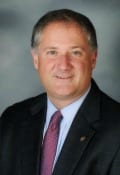Caring for Elderly Parents When You’re the Sandwich Generation

As we enter into the holiday season, many of us will gather with family and loved ones to give thanks for good times and enjoy each other’s company. For millions of Americans in the ‘Sandwich Generation,’ the holiday season is also a reminder of the care needs of both young children and aging parents.
If your parents are entering their golden or twilight years, now may be the time to help them plan for the future.
Make Sure Estate Plans are in Order for Elderly Parents
Although tomorrow is never promised for any of us, having a thorough and carefully drafted estate plan is essential for the elderly. An estate plan typically consists of:
- A Last Will & Testament
- Power of Attorney
- An Advanced Directive for Healthcare
These documents serve most people’s needs well. However, many Americans today are utilizing Trusts and other probate avoidance devices to maintain privacy, avoid probate, avoid estate taxes, get financial resources to heirs more quickly, and exercise more control over the disposition of their assets.
Last Will & Testament
Most people have a working knowledge of a will. The maker of a will, called the Testator, names their Executor, and sets out how property is to be distributed in probate by the Executor. A will is a public document once admitted into Probate Court. Although it may be tempting to go the do-it-yourself route, having a will drawn up by an experienced attorney can avoid unintended headaches for your future beneficiaries.
Power of Attorney
A Power of Attorney is a delegation of authority from one person to another, known as an Agent. Many couples reciprocally name each other as their Agent. A Power of Attorney can be general, which entitles the agent to act in almost any way on behalf of the Principal. Or it can be limited to specific acts, such as signing on behalf of a spouse for a single sale of real estate. A Power of Attorney is referred to as “Durable” when it continues after incompetency, and “Springing” if the Power of Attorney only kicks in upon incompetency.
Advanced Directive for Healthcare
The Healthcare Directive allows the maker to have a say in future medical care and treatment. The maker selects their preference for receiving artificial life-sustaining treatment and blood transfusions, for instance. The Healthcare Directive also allows the maker to nominate a healthcare proxy to make decisions for them.

Compiling a List of Financial Assets and Accounts
Another prudent estate planning step is compiling a list of all financial assets, accounts, retirement funds, investments, bills, logins and passwords. A simple spreadsheet listing bank names and account numbers can reduce the stress on family members in the probate process. Write down or let loved ones know the location of safe deposit boxes and other important tangible property.
Long-Term Care Planning for Elderly Parents
Every family needs to consider potential long-term care needs. In 2017, more than five million Americans are living with Alzheimer’s, according to the Alzheimer’s Association. However, by 2050, the number could more than triple to 16 million. Many Americans diagnosed with Dementia or Alzheimer’s require extensive or around-the-clock care. It’s important to consider these possibilities and evaluate if a long-term care plan is right for you.
One approach to planning for long-term care is what’s become known as “Medicaid Planning”. Nursing home care is quite expensive and often depletes an elderly person’s limited resources. Medicare does not pay for long-term care at a nursing home, although some private insurance plans do. The income requirements for Medicaid are about $2,000.00 or less in assets.
In Alabama, Medicaid also has a five-year “look-back period” which involves Medicaid examining the integrity of financial transactions going back five years in an attempt to prevent the elderly from transferring assets shortly before going on Medicaid. A Qualified Income Trust and other trust devices may be used to help plan for long-term care.
In-Home Care
While some Americans will have to go to nursing homes to get the care they need, many seniors simply require a little assistance around the house with household chores. For these people, there are qualified elder assistance programs in the Tennessee Valley such as American Senior Assistance Program (ASAP) who can take care of care needs and provide trusted advice.
Another option for veterans and their spouses is the Aid & Attendance program from the Department of Veterans Affairs. Under this program, veterans who served during wartime, and their survivors, may be eligible for monetary payments if they require in-home care for functions like bathing, eating, and dressing. Aid & Attendance benefits are available to family members who perform this tasks.
Staying Vigilant Against Elder Exploitation
Unfortunately, elder abuse happens far more often than we like to think. In fact, according to the National Council on Aging, one in ten elderly Americans have experienced abuse. Abuse can take many different forms, including physical abuse, sexual abuse, emotional abuse, neglect, financial abuse, and deprivation of resources.
To prevent abuse, it’s important to know the signs – sudden mood swings, unexplained withdrawals or account activity, lashing out, bedsores, pressure marks, abrasions, poor hygiene, and unusual weight fluctuation. In Alabama, if you suspect elder abuse, call Adult Protective Services toll free at 1-800-458-7214.
This Fall, as you gather around the table with family members and loved ones, consider having a frank and open discussion with elderly parents and offer assistance where it’s desired. A little planning now can go a long way in the future.
You Might Also Like…
- Caring for Aging Parents in Huntsville
- Listen Up Teens: Practice Diligent, not Distracted Driving
- Ask the Expert: How to Protect Your Family From the Equifax Hack Fallout
 ABOUT THE EXPERT: Doug Martinson is a partner with the Huntsville law firm of Martinson & Beason, P.C., where he has practiced for over twenty-five years. Doug is the current President of the Huntsville – Madison County Bar Association and focuses his practice on estate planning, estate administration, and probate law. Doug is a native of Huntsville and is an active member of the Downtown Huntsville Rotary Club, serves on the Huntsville Madison County Library Board and is past President of the Huntsville School Board.
ABOUT THE EXPERT: Doug Martinson is a partner with the Huntsville law firm of Martinson & Beason, P.C., where he has practiced for over twenty-five years. Doug is the current President of the Huntsville – Madison County Bar Association and focuses his practice on estate planning, estate administration, and probate law. Doug is a native of Huntsville and is an active member of the Downtown Huntsville Rotary Club, serves on the Huntsville Madison County Library Board and is past President of the Huntsville School Board.

As a hyper-local website focused on all aspects of parenting in and around Morgan County, and the Tennessee Valley, River City Mom occasionally asks local parents to submit their stories for publication. This is part of our continual effort to represent varied viewpoints and experiences on our site. However, these articles should not be seen as necessarily expressing the views of Rocket City Mom Media Group, LLC.








